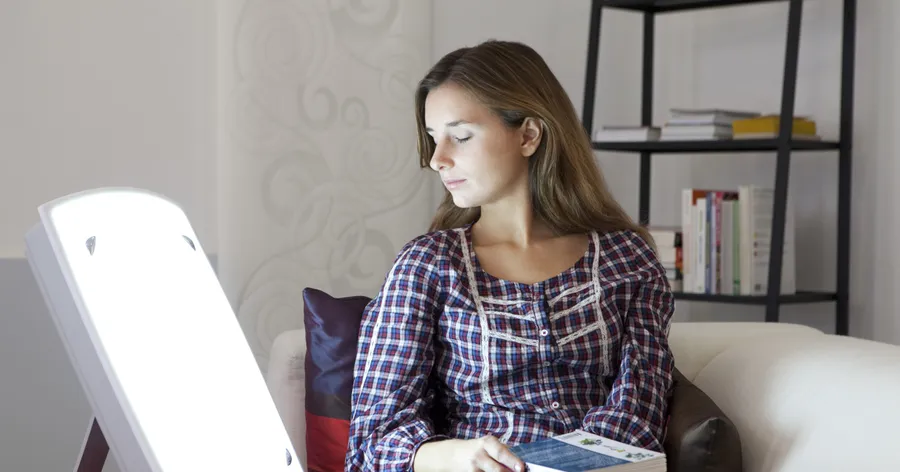While excessive exposure to blue light, especially from digital screens, has been associated with potential negative effects on sleep and eye health, it’s worth noting that not all blue light is harmful. In fact, exposure to natural blue light from the sun and certain artificial sources can have positive effects on your health. Here are six surprising benefits of blue light:
1. Regulation of Circadian Rhythms:
- Positive Effect:
- Exposure to natural blue light, especially in the morning, helps regulate circadian rhythms. It signals to your body that it’s daytime, promoting wakefulness and alertness.
- Benefit:
- Improved sleep-wake cycles, better mood, and enhanced overall well-being.
2. Boost in Alertness and Performance:
- Positive Effect:
- Blue light exposure, particularly in the morning and during the day, has been shown to improve alertness, concentration, and cognitive performance.
- Benefit:
- Increased productivity and mental focus.
3. Treatment for Seasonal Affective Disorder (SAD):
- Positive Effect:
- Light therapy, which often involves exposure to bright artificial light with a blue component, is used as a treatment for Seasonal Affective Disorder.
- Benefit:
- Alleviation of symptoms associated with seasonal depression, including improved mood and energy levels.
4. Eye Health and Myopia Prevention:
- Positive Effect:
- Moderate exposure to blue light is believed to play a role in preventing or slowing the progression of myopia (nearsightedness).
- Benefit:
- Reduced risk of myopia development, especially in children who spend more time outdoors.
5. Regulation of Melatonin Production:
- Positive Effect:
- Exposure to natural blue light during the day helps suppress the production of melatonin, a hormone that induces sleep.
- Benefit:
- Improved sleep quality and the maintenance of a healthy sleep-wake cycle.
6. Mood Enhancement:
- Positive Effect:
- Blue light exposure, particularly in the morning, has been linked to the release of serotonin, a neurotransmitter associated with mood regulation.
- Benefit:
- Improved mood and a potential positive impact on conditions like depression.
How to Safely Incorporate Blue Light:
While there are benefits to blue light exposure, it’s crucial to manage it wisely, especially from artificial sources like digital screens. Here are some tips:
- Morning Exposure:
- Spend time outdoors in the morning to receive natural blue light, which helps regulate your circadian rhythm.
- Daylight Exposure:
- Allow exposure to natural light during the day, especially if you work indoors. Take breaks outside when possible.
- Limit Screen Time at Night:
- Reduce exposure to screens, especially in the evening, as blue light can interfere with melatonin production and disrupt sleep.
- Use Blue Light Filters:
- Consider using blue light filters or applications on electronic devices to reduce the intensity of blue light emitted.
- Invest in Blue Light Glasses:
- Blue light blocking glasses can be worn, especially in the evening, to reduce potential negative effects on sleep.
- Choose LED Lighting Wisely:
- Opt for LED lights with a warm color temperature in the evening to minimize exposure to blue light before bedtime.
- Follow the 20-20-20 Rule:
- If you spend extended periods looking at screens, follow the 20-20-20 rule: every 20 minutes, look at something 20 feet away for at least 20 seconds.
As with many aspects of health, balance is key. While there are benefits to blue light exposure, it’s essential to be mindful of the timing and intensity, especially in the context of our modern, screen-dominated lifestyles. If you have specific concerns about blue light exposure or experience sleep-related issues, consulting with a healthcare professional is advisable.

